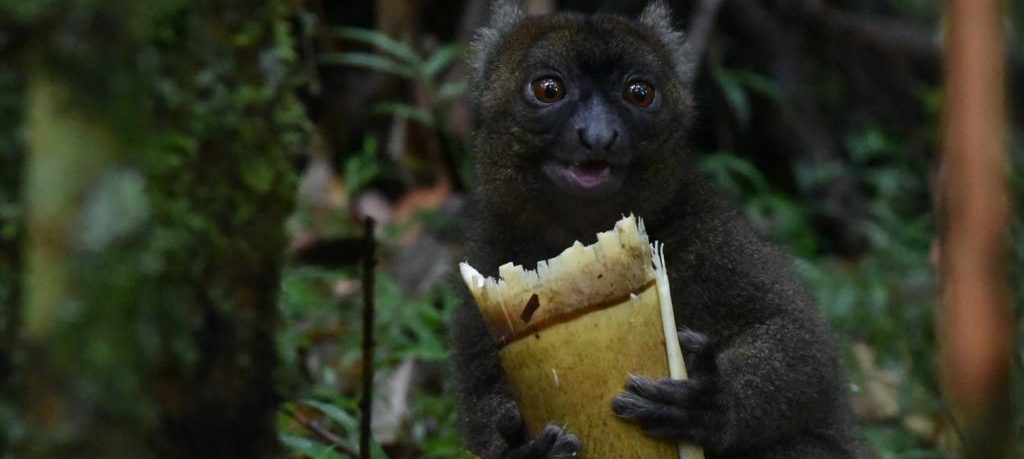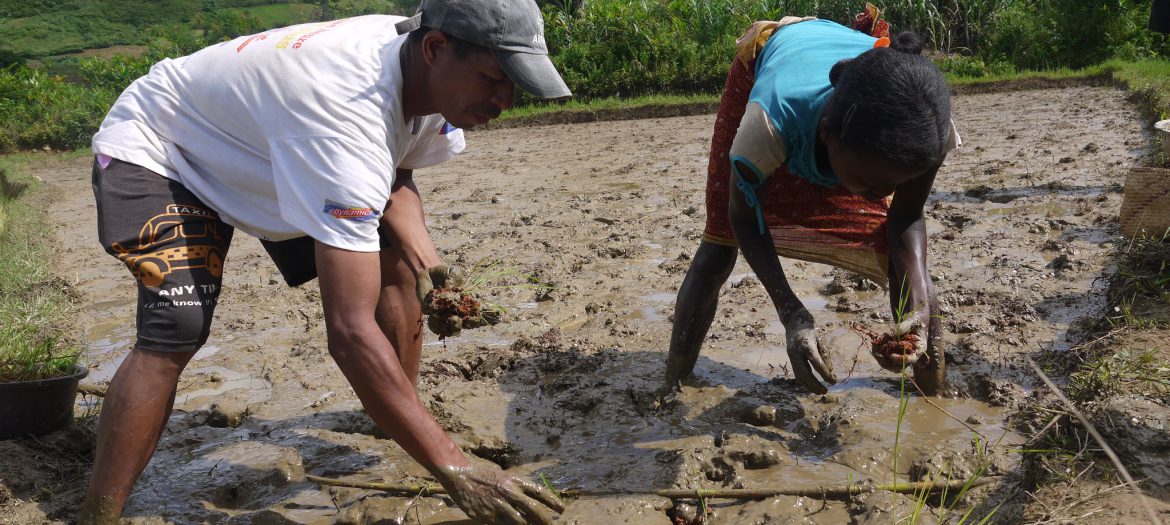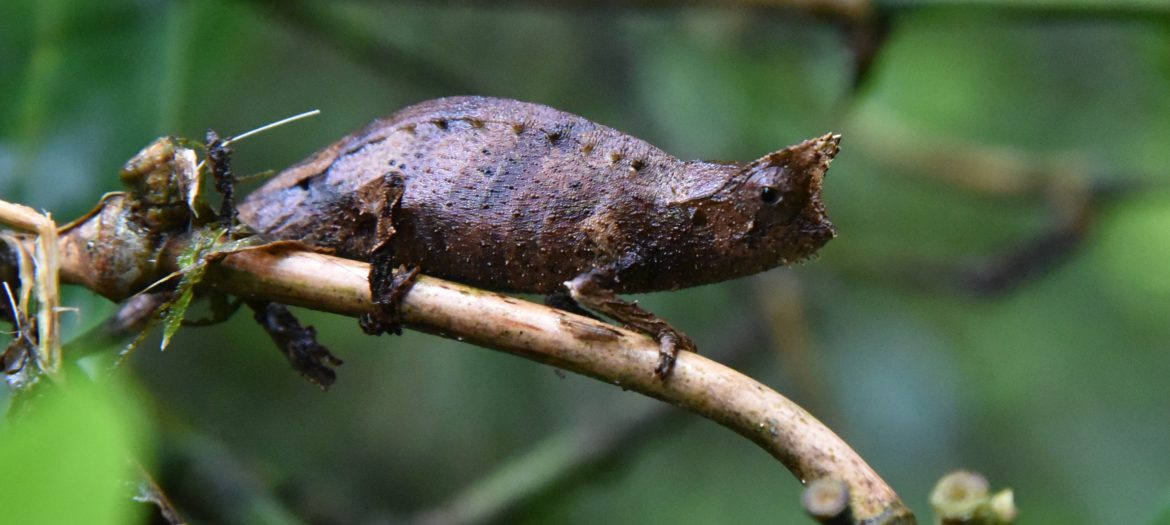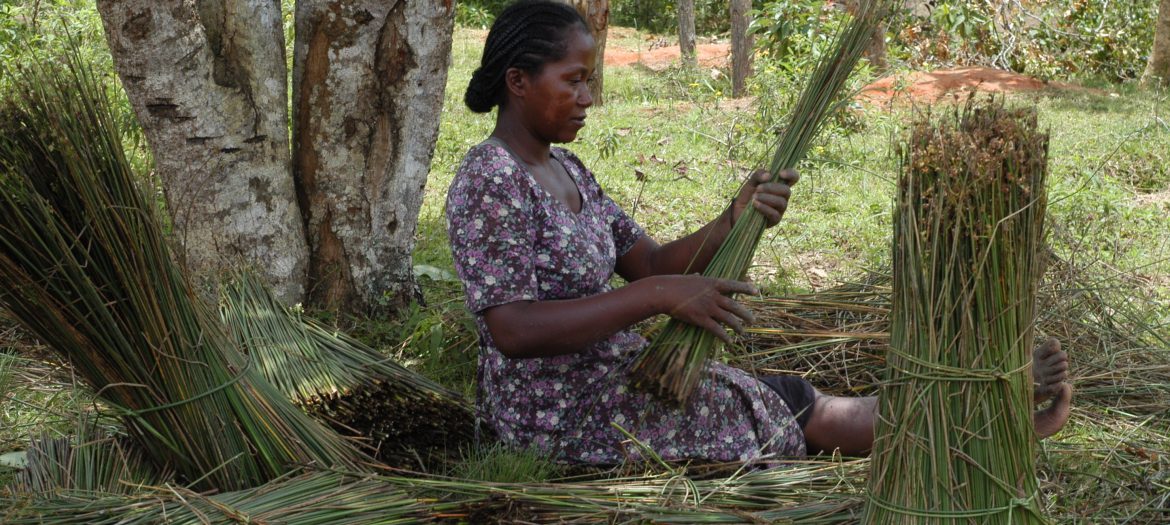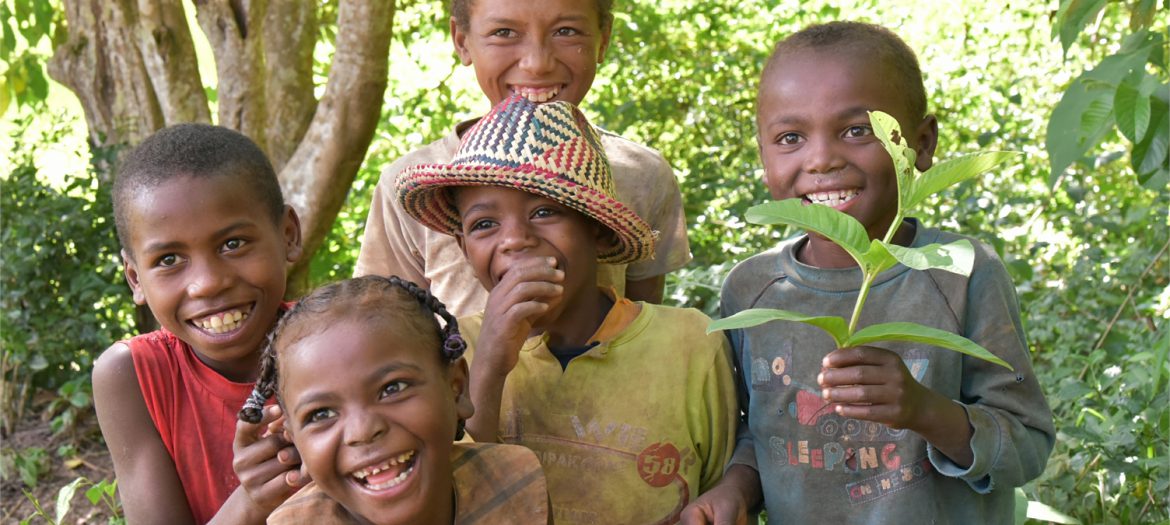In Madagascar, the population faces many environmental, economic, health-related and social challenges. These challenges mean there are higher rates of poverty, particularly in rural areas. It is the poorest families that are most at risk of suffering from high infant mortality, malnutrition etc. and also the least able to cope.
Through numerous interventions in remote areas working closely with Community-based forest management association, Ny Tanintsika has identified a problem in that the most vulnerable households are often excluded from the Community-based forest management association. Because of this, they are unable to reap the benefits of development projects and, in worst-case scenarios, these projects actually have the unintended consequence of causing increasing inequality within rural communities.

Ny Tanintsika launched the TAFITA initiative in 2014 to address these issues and to strengthen existing agro-forestry promotion projects carried out with the Community-based forest management association in the area. Funded for 3 years by the Innocent Foundation through Feedback Madagascar, the TAFITA project helps to improve food security and nutrition in a sustainable manner in 800 vulnerable households in 20 communities along the COFAV (Ambositra-Vondrozo Forest Corridor). These communities are located in the districts of Tolongoina, Ambinanitromby, Ikongo, Ankarimbelo, Antodinga, Ambolomadinika, Kalafotsy, Ambohimahamasina and Miarinarivo. Often these families are comprised of single parents, especially single mothers and of young parents with children.
Improving agricultural production
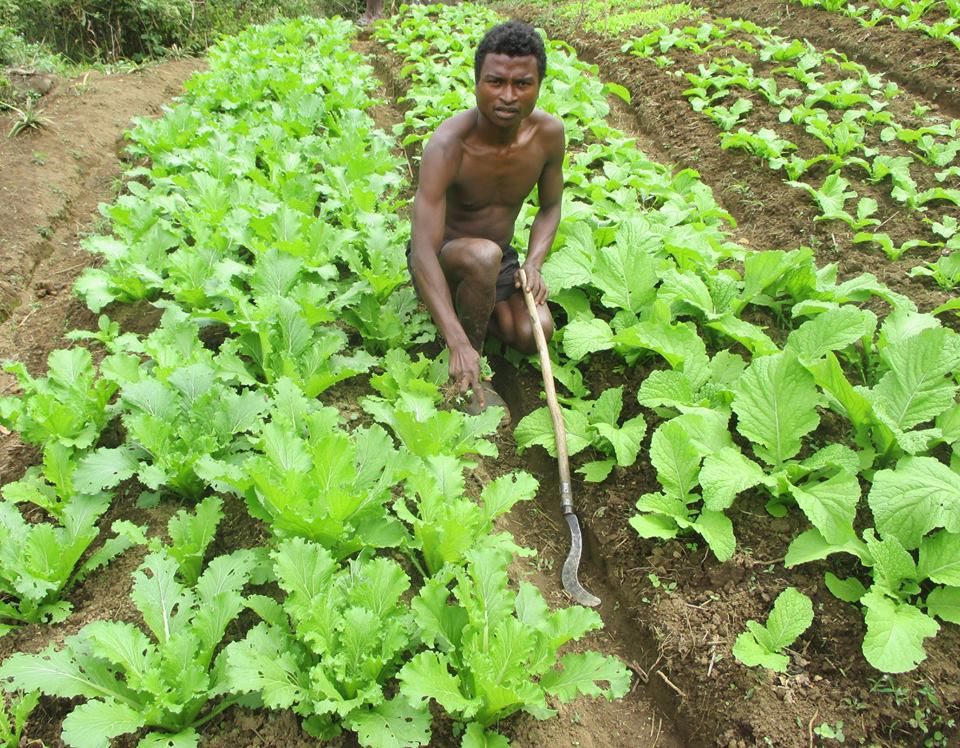
The TAFITA project has three main objectives; improved and diversified agricultural production, increased incomes and purchasing powers and reduced malnutrition. Ny Tanintsika’s strategy is based on the empowerment of women and young people. In order to achieve sufficient agricultural production, the materials and techniques traditionally used need to be improved. Modern equipment and enhanced seeds are provided for the beneficiaries to facilitate the development of modern agro-forestry techniques. Support for subsistence farming is combined with support for cash crops such as vanilla and pepper to secure long-term and consistent income for these households. Equally, we also assist the villagers in the community management of agricultural equipment such as ploughs that have been adapted to the hillsides farmed by the villagers.
In addition to grants, we provide training in agro-ecology and agricultural intensification techniques to improve on traditional methods. We organise educational film screenings to improve people’s understanding of modern farming techniques, which serve to open these isolated populations’ minds to new things.
We also organise consultation meetings between the project’s beneficiary households. These meetings give people the opportunity to discuss their problems, to share their experiences and allow them to draw up plans of action together.
The snowball effect
The project reached 100 households in its first year, 400 in its second year and 800 in its third. This has been achieved with a ‘farmer-farmer’ approach, which consists of sharing knowledge and skills amongst farmers, whereby each beneficiary household gives a portion of its yield to other farmers to increase the total number of beneficiaries.
The communal land office serving vulnerable households

In addition to issues relating to agricultural methods, land-ownership is another challenge for Ny Tanintsika and these households. Very few rural villagers have access to legal documents, posing a serious threat to their arable land. Just like in other regions of Madagascar, land is inherited ancestrally through oral transmission. The heirs to the land, perhaps by lack of means or lack of access to information, often do not report their property to the authorities or acquire their rightful land deeds. As a result, malicious people are able to claim these lands administratively and steal from the rightful owners. This is a common phenomenon, and negatively affects local social and economic life, creating serious conflicts amongst village populations.
Since November 2015 Ny Tanintsika has offered its support to the community, such as is the case in the urban district of Ikongo, through the operationalisation of the Communal Land Bank (BIF). Among other things, we supply computer hardware (computer, external hard drive and printer) as well as train desk officers (trained in decentralised land management, administrative management of the land office, local recognition and award and certificate management) to make sure they respect all the procedures required to grant land deeds to the local people. We also provide post-training supervision of these agents. Rural households can now obtain their land certificates (Karatany) without having to move to the cities to secure their land and can continue farming without worrying about the risk of land theft.

Improving nutrition
Adopting good nutritional habits is essential in the fight against malnutrition. The WASH campaign (Water, Sanitation and Hygiene) provides a solution to this problem by raising awareness and spreading key messages about sanitation and drinking water. Female leaders have been trained in each targeted community to spread these messages, perform cooking demonstrations and mobilise their communities. Different communication tools such as visual imagery have been developed for the community agents to spread important messages relating to nutrition in the community.




